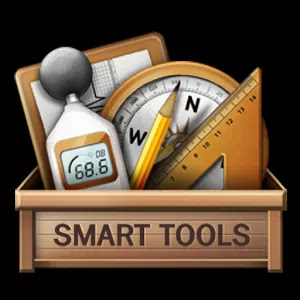How to Take Measurements using Android

Android devices are mainly popular because of the wide range of applications, both paid and free, which are available on the Google Play Store. Moreover, given the range of hardware features which most Android devices support, for instance, multiple sensors, developers use apps to interact with those sensors and deliver additional functionality. For instance, if you want to use your Android device to take measurements, you can install an app to help you do that.
Instructions
-
1
Make sure you are connected to the internet through Wi-Fi or your data plan and run the Play Store application.
-
2
Use the search functionality in Play Store to look for an app called ‘Smart Tools’. Download the app and install it on your device.
-
3
After the app is installed, run it from the app drawer. The main screen will have all sorts of tools to depict the different measurements you can take.
-
4
If you tap the ruler on the top shelf, your screen will change to reflect calibrations with measurements. You can now place anything on the screen and use your fingers to ascertain the length, width or height of the object.
-
5
The next tool is the protractor, using which you can measure angles. It uses the sensors in your device to assess the angle at which it is tilted. You can tilt your device to sides and the protractor will tell you the angle at which you are working. There is a visual protractor mode as well, allowing you to use the device’s camera to visualize the background and overlay it with the protractor measurements.
-
6
There is also a level meter, which allows you to ascertain whether a surface is flat, or straight, horizontally and vertically. For instance, if you want to see whether an object is completely straight, you can place your device next to it and read the level meter.
-
7
The distance tool is the most interesting. It uses your camera and gives you instructions to mark an object on the screen so that it can tell you how far it is from you. Likewise, there is an option to calculate an object’s height using its top and bottom as reference points. Keep in mind however that the readings taken with this tool are not completely accurate.
-
8
There is a compass and a metal detector tool also available, both of which read the magnetic field around your device to deliver information.
-
9
Sound and vibration level meters are also available. Again, both these tools employ the hardware in your device to give functional results.







